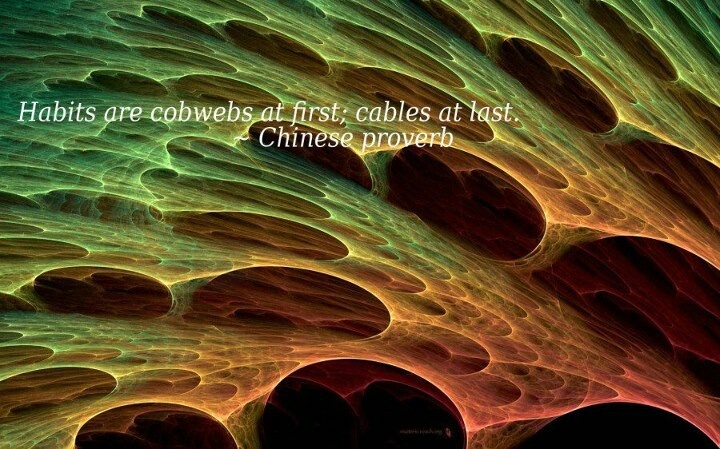Habits are cobwebs at first; cables at last. —Chinese Proverb
There is new research on the habit loop, which finds that when a habit emerges, the brain stops fully participating in decision-making. Like being asleep, some habits can be effortless and occur unthinkingly. Hundreds of habits influence our days, how we get dressed, talk to our kids, fall asleep. The brain’s dependence on automatic routines can be a double-edged sword. Over time, the habit loop “cueèroutine èreward” becomes more and more automatic. The cue and reward become intertwined, creating anticipation then a craving and soon, a habit is born. The brain does not distinguish between a good and a *bad habit (*addictions are an exception). Unless and until we find new routines, the pattern will continue without our being aware of it.
This is why it is hard for us to create exercise or new eating habits or more balance in our lives and relationships. Once the routine is patterned in our brain, great energy is required to change the brain patterns. Habits are not destiny. We can create new routines to overpower behaviors we want to change. We can take control of the habit loop by forcing bad habits into the background. Once we create a new pattern, studies show that exercising/ignoring donuts/engaging more lovingly with your kids can become as automatic as any other habit. We can choose habits once we know how. Build a healthier routine to yield the same reward.
Here’s how one person I know kept the reward, but changed the routine. He had been sedentary and wanted to build regular exercise into to his life. He is a movie buff and dislikes group exercise. He began watching interesting documentaries on his iPad while on the treadmill. He only allows himself to watch these movies while walking at a fast incline. He often finds he will stay on for up to 90 minutes without even being aware of the time. This turned into a keystone habit that improved his eating and sleeping. He interrupted his routine, kept the rewards, and created a new habit to which he was able to dedicate himself to. So what habit do you want to change so that a year from now you may wish you had started today?
We first make our habits, and then our habits make us. –John Dryden

